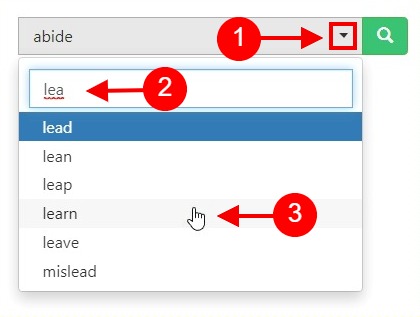活用 [fail]
コンジュゲート変曲(文法の規則に従ってフォームの変化)により、その主要部分から動詞の派生形の創造です。例えば、動詞「ブレーク」、言葉の区切りを形成するために結合した休憩、壊れた、壊れ、破壊することができます。
用語の結合は、他の部分でのみ動詞の変曲に適用される、とされていませんスピーチ(名詞と形容詞の屈曲が語形変化として知られています)。また、それは、多くの場合、動詞の有限形態の形成を示すに制限されている - これらは、共役形式と呼ばれることも、ほとんどの用にマークされていない傾向があり、このような詞や動名詞などの非有限の形、とは対照的に、文法カテゴリーます。
コンジュゲートまた、特定の言語で同様のコンジュゲーションパターン(動詞クラス)を共有動詞のグループのための伝統的な名称です。言語の標準的なコンジュゲーションパターンの全てに従わない動詞があると言われる不規則動詞の
条件付きの
(Conditional)
[fail]
因果関係には、(因果関係または因果とも呼ばれます)原因は)別のイベント、プロセス、状態や原因は効果のための部分的な原因であるオブジェクト(効果)の生産に寄与し、その効果は、原因に部分的に依存しています。一般的に、プロセスは、因果それのための要因、およびその過去のすべて嘘であると言われている多くの原因があります。効果は、順番に、他の多くの効果についての原因、または原因因子、その将来的にはすべて嘘ことができます。
条件法(略称COND)その有効性恐らくは反事実、いくつかの条件に依存する命題を表現するために、条件文で使用される文法的な気分である。
英語は、モーダル動詞限りを除いてinflective(形態学)条件法を、できたかもしれない、すべきであり、いくつかの場面で、缶の条件付きの形とみなすことができるだろうが、ものとしますそれぞれません。英語条件法(または単に条件付き)と呼ばれるものperiphrasticallyモーダル動詞を用いて形成されているだろう、次の動詞の裸不定詞と組み合わせて用いることができます。 (時折、一人称の対象となりの代わりに使用されている必要があります - 。。見るであろう。また、前述のモーダル動詞は、可能性があり、コンディショナリティーに加えて、適切なモダリティを表現するために希望置き換えることができなければならない可能性があります)。
条件付き存在
(Conditional present)
条件付き現在進行
(Conditional present progressive)
条件付き完璧
(Conditional perfect)
Subjunktiv
(Subjunktiv)
[fail]
仮定法は文法的な気分、それに向けた話し手の態度を示して発話の機能です。動詞の仮定法の形式は、通常のさまざまな状態を表現するために使用されている非現実のような:願い、感情、可能性、判断力、意見、義務、または、まだ発生していないアクション。それらが使用される正確な状況は、言語から言語によって異なります。仮定法は必ずしも本当ではありません何を参照して非現実相の気分、の一つです。それは、多くの場合、その何かを示すために主に使用される指標で、直説法と実際の文です。
このSubjunctives特にこと-節、従属節では、独占的に最も頻繁に発生し、ではないが対比されます。英語仮定法の例としては、英語で「彼女があなたの側で滞在することが重要である。」「私はあなたが注意することを示唆している」と
この仮定法はで使用される句のタイプである文章中に発見されました非現実の可能性を説明し、いくつかの状況、例えば「それは彼が早く到着することが重要です。」「それはあなたがここにいることが重要だ」と何も特別仮定法動詞形がないので、英語では、仮定法は、語形変化ではなく、構文です。むしろ、仮定法句はまた、他の構成の様々な使用される動詞の裸形を補充する。
Imperativ
(Imperativ)
[fail]
が不可欠気分には、フォームのコマンドまたはリクエストます。
不可欠な気分に使用される動詞の例では、英語のフレーズであることを「行く。」文法的な気分でありますこのような要請は、(あなた)二人の対象を意味するものではありますが、いくつかの他の言語もフォームは、(「レッツ(何かを)」または「彼らは(何かを)聞かせて」の意味で、一次および第三者の要請を持っています代わりに)cohortativeとjussive呼び出される。
分詞
(Participle)
[fail]
は言語学では、分詞(PTCP)を含む完全化又は多数の時制で継続文法的側面こと準動詞の形態です。分詞はまた、形容詞または副詞として機能することができます。例えば、「ゆでジャガイモ」、で煮沸動詞沸騰、形容詞名詞ジャガイモを修飾する過去分詞です。 ぼろぼろの "私たちは、ぼろぼろ走った" でadverbially動詞RAN予選、動詞のぼろの過去分詞です。
